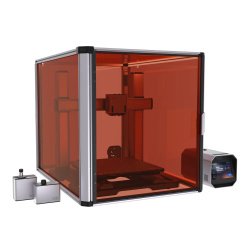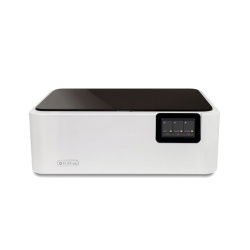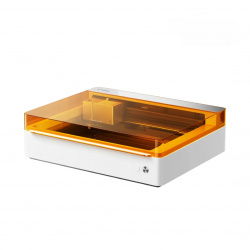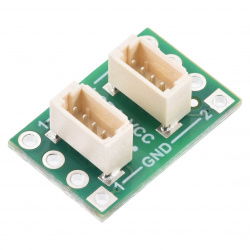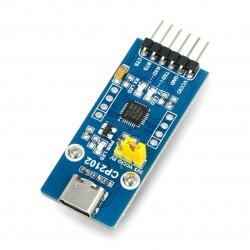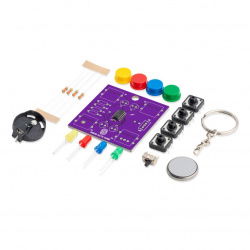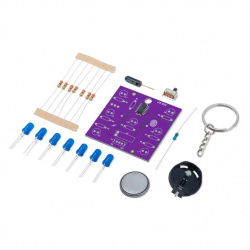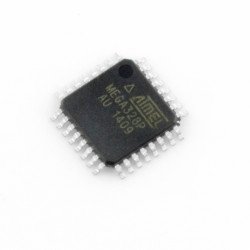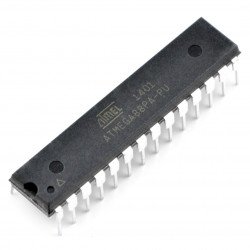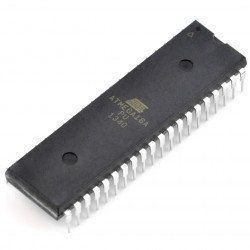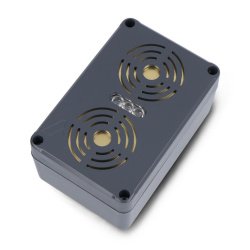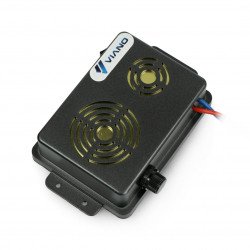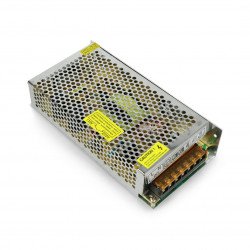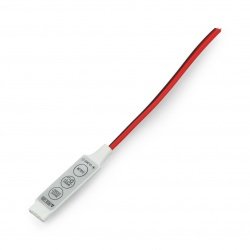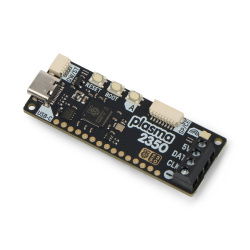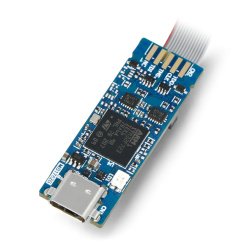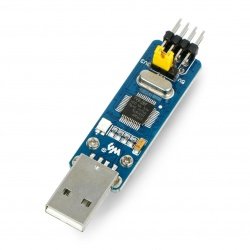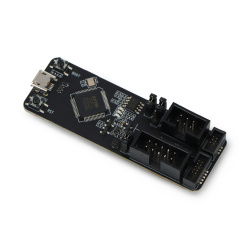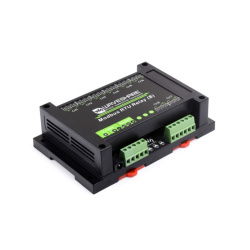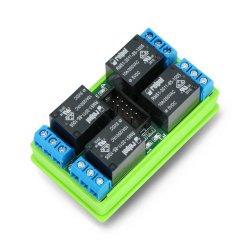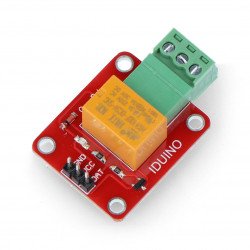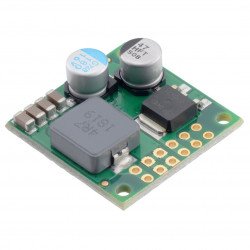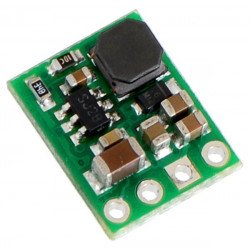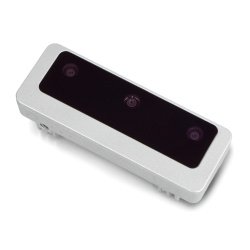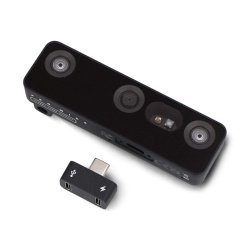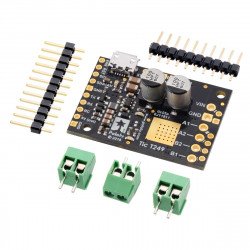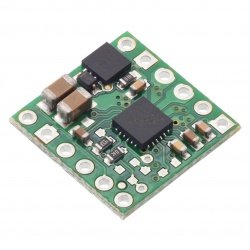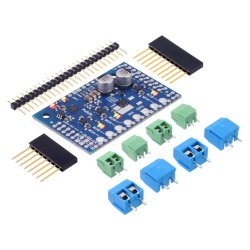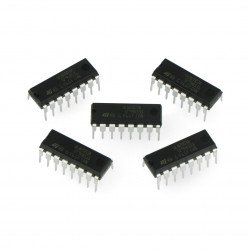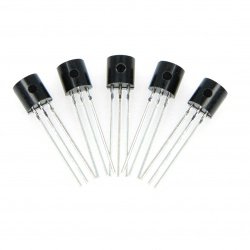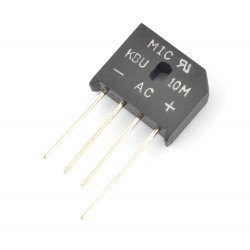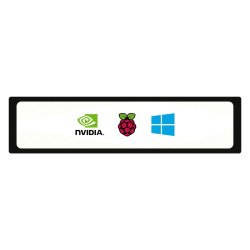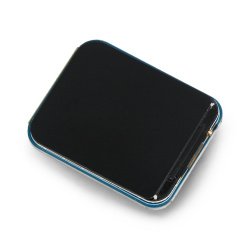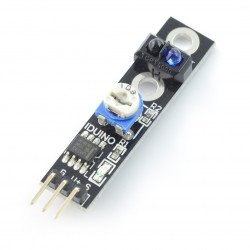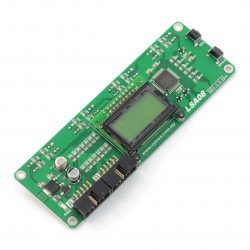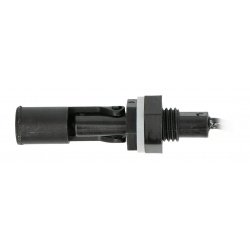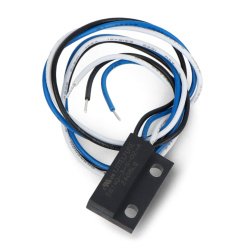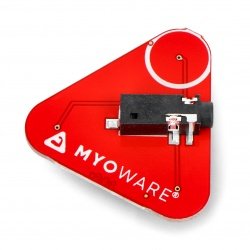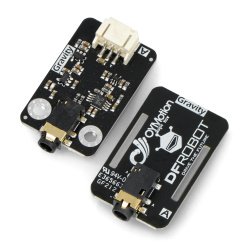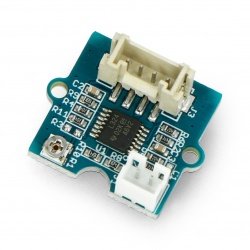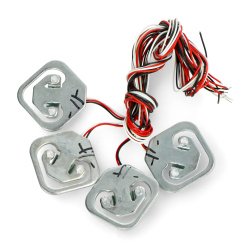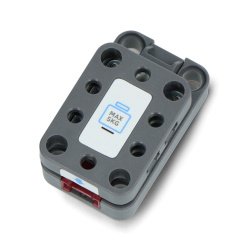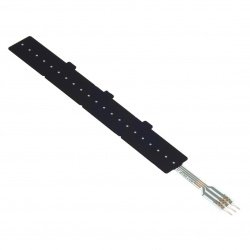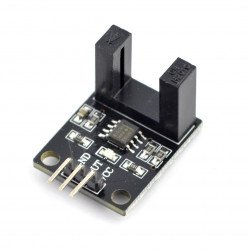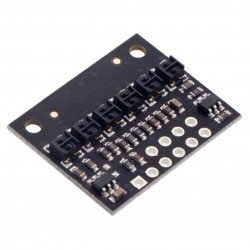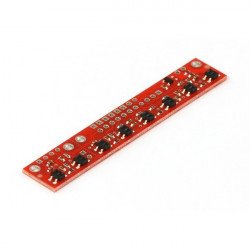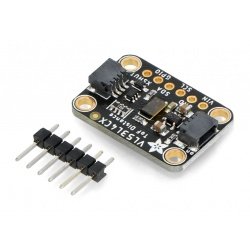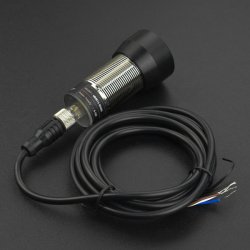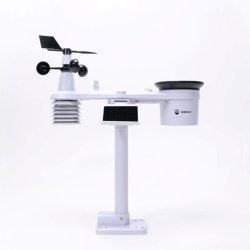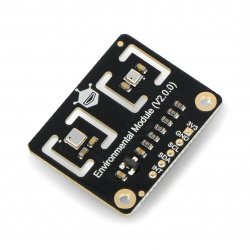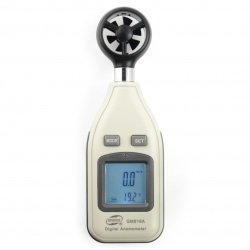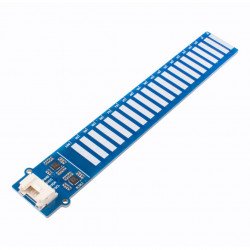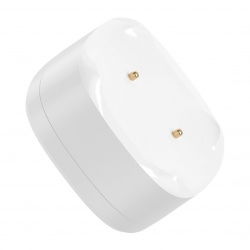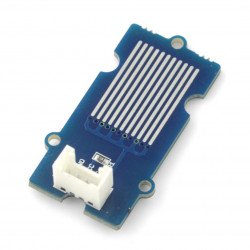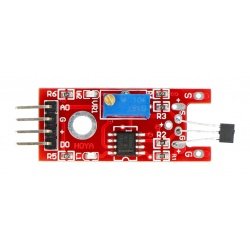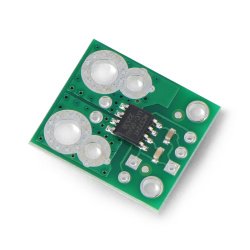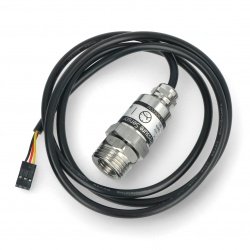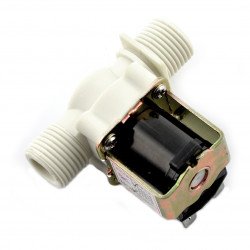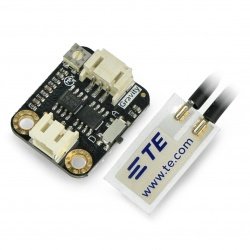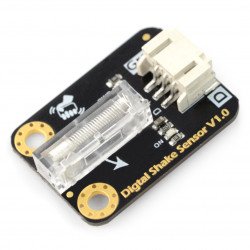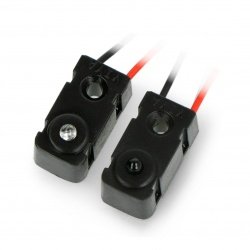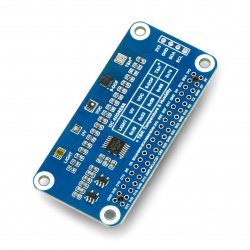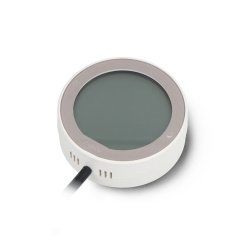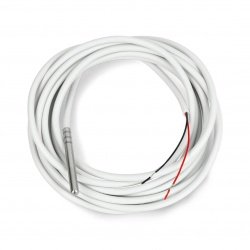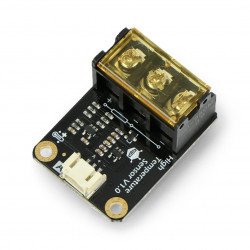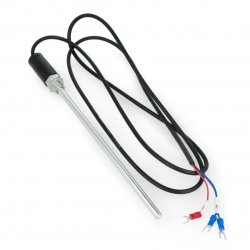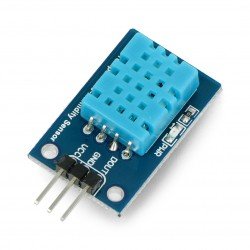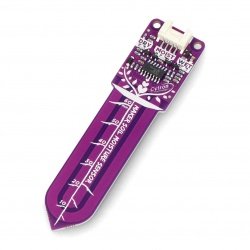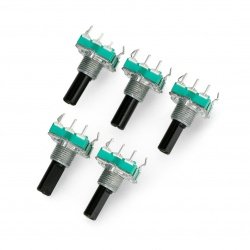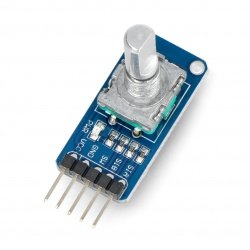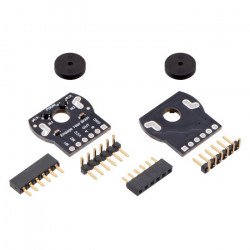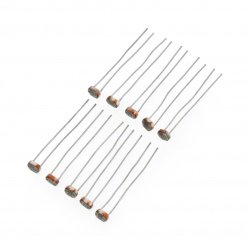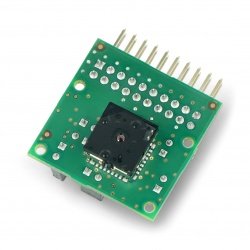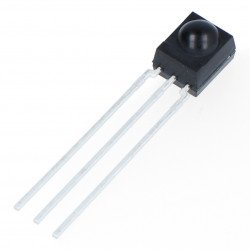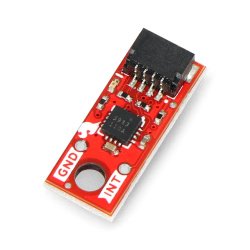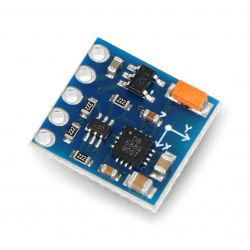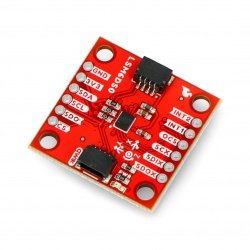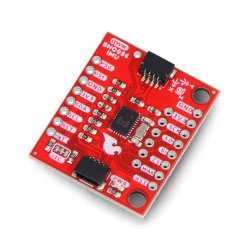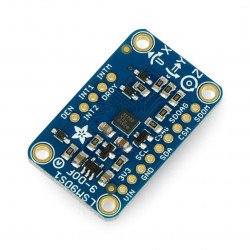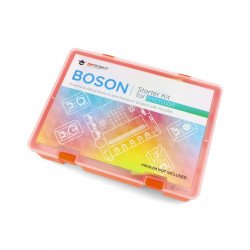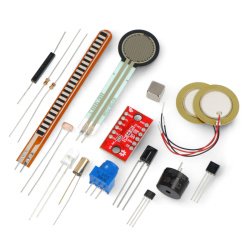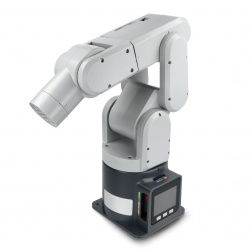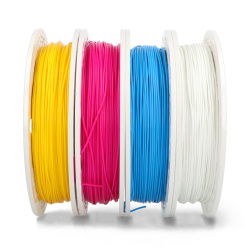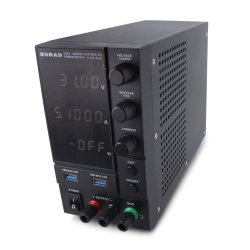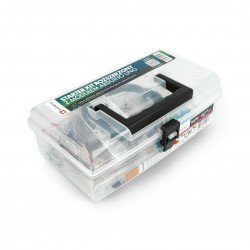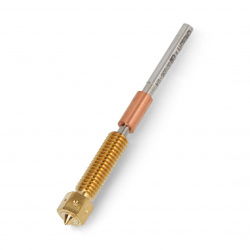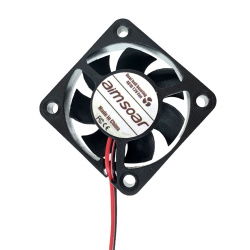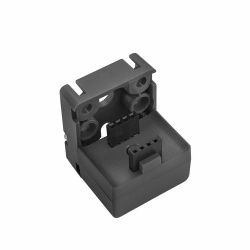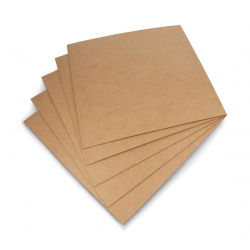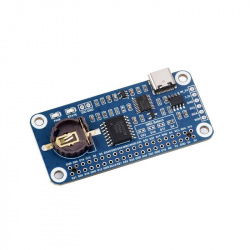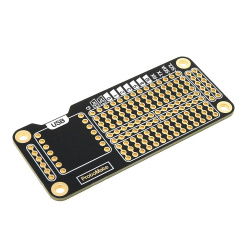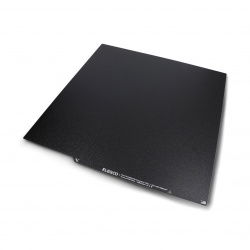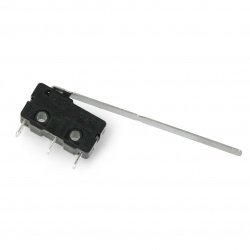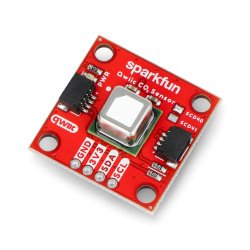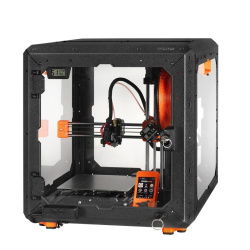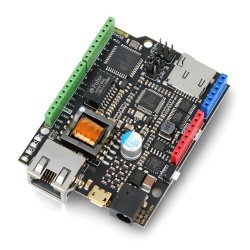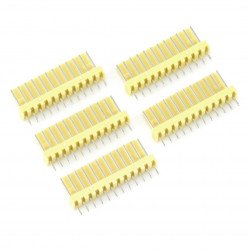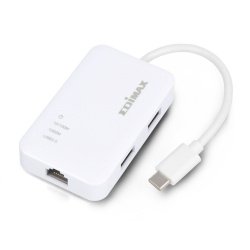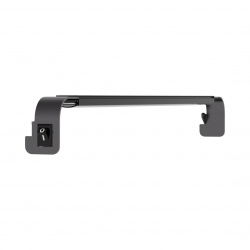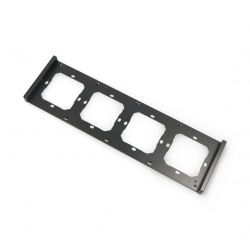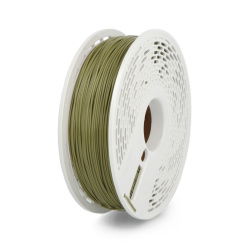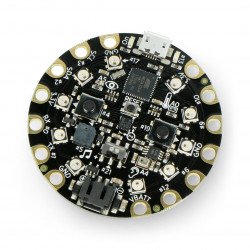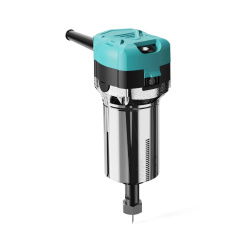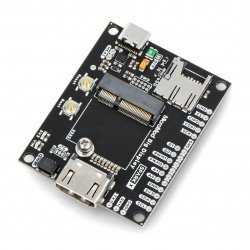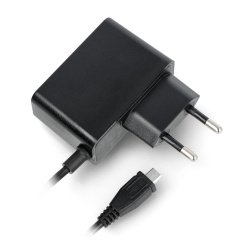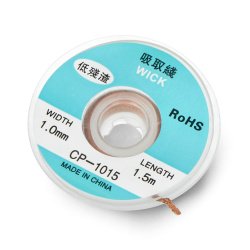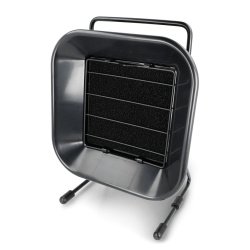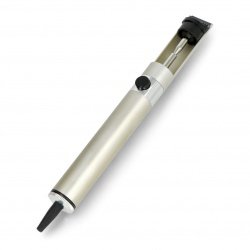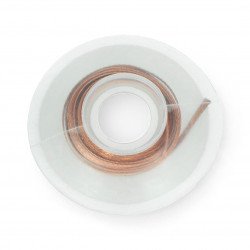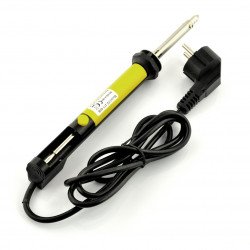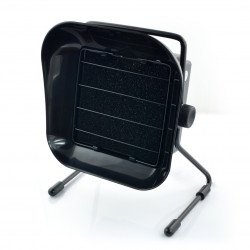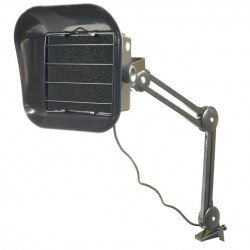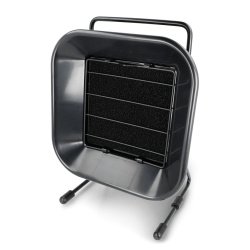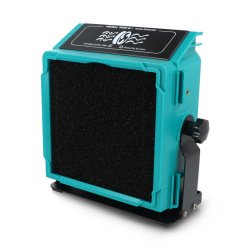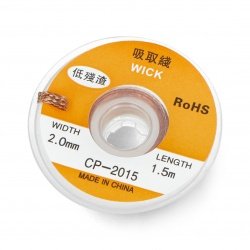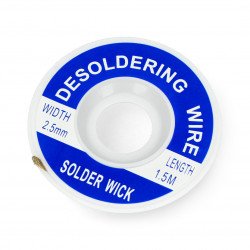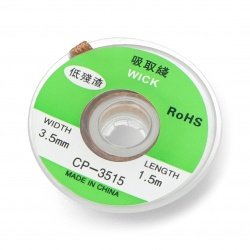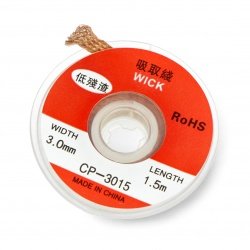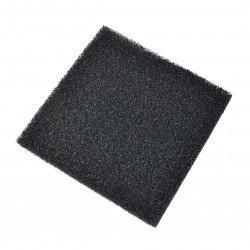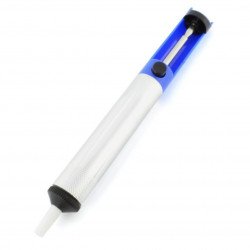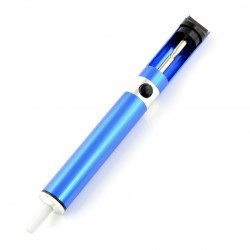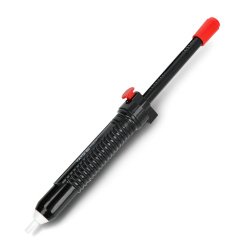"Do not mistake only he who does nothing" - this is known for centuries, the principle is also applied in electronics. Very often, especially when prototypowaniu happen to make a mistake during the soldering plate. The element normally in reverse polarity or in the wrong place, in the best case, will reduce performance and worst-case scenario is permanent damage to one or more elements, and even entire tile, so as soon as possible to replace the incorrectly installed element or to improve the data connection. In the first occurs frequently you need rozlutowania existing connections. For this purpose, are odsysacze and braids.
Odsysacze i plecionki lutownicze
Soldering fume absorber 493 30W
The absorber uses a carbon filter to neutralize smoke and harmful fumes generated during work at the soldering station. It significantly improves the comfort and safety of...Metal tin extractor Xytronic 1000AS HQ
High quality soldering iron - Xytronic 1000AS HQ . The tool significantly facilitates soldering work - helps to suck out the excess tin in undesirable places. It has a tip made...Electric tin extractor 30W - Yihua 929D-V
The professional Yihua 929D-V electric soldering extractor with a power of 30 W is an irreplaceable tool for every electronics engineer. It heats up quickly and enables...Metal tin sucker SS-03 - Adafruit 1597
Professional SS-03 solder extractor made of aluminum . This tool is designed to remove excess tin during the desoldering process or from unwanted places. The silicone tip...Electric solder sucker ZD-211 40W
A device for removing tin excess. Itfacilitates desoldering of electronic components from printed circuit boards. Model ZD-211 has a metal case with a diameter of 20 mm and...Soldering fume absorber AKS-153 23W
The device removes the fumes produced during soldering. It has two replaceable carbon filters. Absorption capacity reaches 1 m3/min. The absorber is powered by 230 V mains...Soldering fume absorber AKS-153A on a jib
The device removes fumes generating during soldering. It has two replaceable carbon filters. The absorption efficiency reaches 1 m3/min. Absorber is powered by mains voltage...Soldering fume absorber 493 16W
An absorber that neutralizes smoke and toxic fumes generated during work at the soldering station. It significantly improves the comfort and safety of work . The set...Soldering vapour absorber 5W - Yihua 948D QI
The Yihua 948D QI fume absorber effectively eliminates smoke and harmful fumes , ensuring clean air while working at the soldering station. The device has a power of 5 W and...Solder wick for tin 3,5mm - CP-3515
It sometimes happens that during the soldering process we short-circuit the chip's legs being very close to each other. In this case to remove excess tin the braided copper wire...Carbon filter for the AKS-153 fume absorber
Carbon filter designed for AKS-153 vapour absorber.See also
Braided solder – or how physics helps electronics
Tin suction braid allows for easy and precise removal of excess or all tin from both through-hole (THT) and SMD connections. Products of this type simply apply to the soldering area.
The principle of its operation is very simple - the tin heated with the soldering tip is automatically "pulled" between the thin wires of the braid, and this is caused by the forces of molecular interactions on the microscale.
Tin sucker - what else is worth knowing about it?
Since the braid is made of copper, to which tin adheres very easily, there is no need to use any additional tools - just touch the end of the clean braid to the heated solder, and it will soak into the structure without your help, removing the solder from the solder pad of the printed circuit board. The width of the braid should be selected according to the size of the connection, so it is always worth having several different wires at hand, e.g. 1 mm, 2.5 mm and 3 mm, which facilitate soldering.
Solder extractors and their use in service and assembly
The principle of operation of tin extractors is more obvious than that of braided ones - an ordinary vacuum is used, generated by a small piston that moves out rapidly when the lock is released. The syny aspirator is equipped with a piston that moves in the cylinder under the action of a spring, causing tin to be sucked into the cylinder.
The main difference between working with an aspirator and a braid results from the effectiveness of both methods - removing tin using a braid is very precise, but it only works well with smaller amounts of tin (after a while you have to use another piece of wire, cutting off the previously used one, i.e. soaked). solder).
In turn, a tin extractor is a product that allows you to quickly remove larger amounts of tin, therefore it is much better suited for working with connections of THT elements - through-hole resistors, large capacitors, coils, connectors, transistors and integrated circuits. The soldering extractor is easy and intuitive to use. This type of product is chosen by both experienced and beginner electronics enthusiasts. We encourage you to read the entire soldering section, where you can find, among others: tin and soldering pastes , tips , holders and magnifiers for electronics and much more.
Other soldering equipment
In addition to planning the purchase of braids and aspirators, it is also worth thinking about your own health - as we know, when soldering, flux fumes and smoke are emitted from the tip, which not only can irritate the eyes and respiratory tract, but also adversely affect health during longer assembly and service work. . Therefore, it is really worth equipping your studio with a fume absorber, which, in addition to a large fan, also includes an activated carbon filter that cleans the air sucked in by the fan and prevents harmful fumes from accumulating in the room.
Our offer includes both stationary absorbers (AKS-153) and those placed on booms (AKS-153A), which greatly facilitates work in the case of small worktable dimensions. In the Botland online store you will find a wide selection of products coming directly from manufacturers or proven suppliers.
Aspirators and braids - FAQ
The easiest option is to buy a ready -made tin extractor - it is a very small expense. You can also make it yourself with a mechanical aspirator (e.g. using a syringe) or build an electric device based on diagrams available on the Internet (usually based on simple DC motors and other easily available electronic components).




